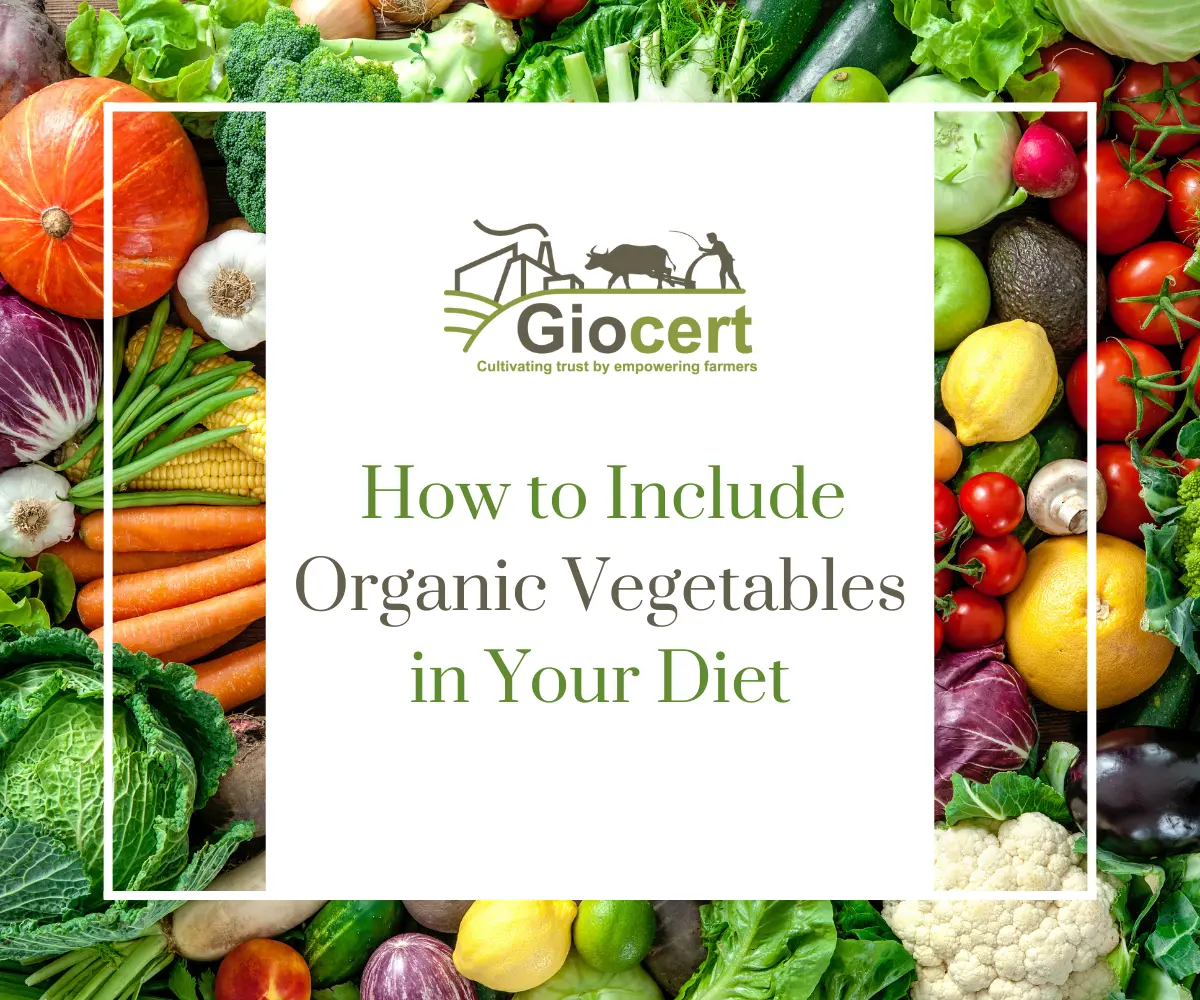In recent years, there has been a growing interest in organic food, especially organic vegetables. Many people are becoming more health-conscious and environmentally aware, leading to a shift toward organic farming and produce. Organic vegetables are grown without synthetic pesticides, chemical fertilizers, or genetically modified organisms (GMOs), making them a healthier and more sustainable choice. Including these nutrient-rich vegetables in your diet is beneficial for your health, the environment, and the farmers who grow them. Here’s how you can incorporate organic vegetables into your daily meals.
1. Understand the Benefits of Organic Vegetables
Before diving into the “how,” it’s essential to understand the “why.” Organic vegetables are packed with nutrients like vitamins, minerals, and antioxidants, which are crucial for maintaining good health. Since they are grown without harmful chemicals, organic vegetables tend to have higher nutritional content. Additionally, eating organic supports sustainable farming practices that protect the soil, water, and biodiversity.
2. Start Small with Easy Swaps
If you’re new to organic vegetables, start small by swapping a few conventional items with organic options. For instance, choose organic carrots, spinach, or tomatoes for your salads and cooking. These vegetables are commonly available and can make a significant difference in your diet. Gradually, you can expand your choices as you become more comfortable and familiar with organic produce.
3. Shop at Farmers’ Markets or Organic Stores
To ensure the freshness and authenticity of your organic vegetables, consider shopping at local farmers’ markets or organic stores. Farmers’ markets are excellent places to find seasonal, locally-grown organic produce. By buying directly from farmers, you also support the local economy and sustainable agriculture. Organic stores and some supermarkets also offer a wide range of organic vegetables, making it easier to make the switch.
4. Plan Your Meals Around Seasonal Produce
One of the best ways to incorporate organic vegetables into your diet is to plan your meals around seasonal produce. Seasonal vegetables are often fresher, more flavorful, and more affordable. For example, during the summer, you can enjoy organic zucchini, bell peppers, and cucumbers, while winter is great for organic root vegetables like carrots, beets, and sweet potatoes. Planning your meals around what’s in season ensures variety and helps you get the most out of your organic diet.
5. Grow Your Own Organic Vegetables
If you have space, consider growing your own organic vegetables at home. Starting a small vegetable garden is a rewarding way to ensure that your produce is genuinely organic. Tomatoes, lettuce, and herbs like basil and cilantro are easy to grow and don’t require much space. Gardening also offers a hands-on learning experience about where your food comes from and the effort involved in organic farming.
6. Incorporate Organic Vegetables into Your Favorite Dishes
Adding organic vegetables to your favorite dishes is an easy and delicious way to increase your intake. For breakfast, add organic spinach or tomatoes to your omelets. For lunch, prepare a salad with organic lettuce, cucumbers, and carrots. At dinner, include organic vegetables in soups, stir-fries, or as a side dish. Smoothies are another great option; blend organic kale, spinach, or carrots with fruits for a nutritious and refreshing drink.
7. Try New Recipes
Exploring new recipes can make eating organic vegetables more exciting. Look for recipes that highlight the natural flavors of organic produce. For instance, roasted organic carrots with a drizzle of honey and thyme, or a simple organic tomato and basil salad, can turn everyday meals into gourmet experiences. Trying new recipes helps you discover different ways to enjoy a wide variety of vegetables.
8. Involve the Family
Getting the whole family involved can make the transition to organic vegetables fun and educational. Encourage children to help with shopping, meal planning, or even gardening. Teaching them about the benefits of organic food and how to prepare it helps build healthy eating habits that can last a lifetime.
9. Be Mindful of Budget
Organic vegetables can sometimes be more expensive than conventionally grown ones, but there are ways to make them more affordable. Buying in-season produce, shopping at farmers’ markets, and purchasing in bulk can reduce costs. You can also prioritize buying organic for the “Dirty Dozen” — a list of fruits and vegetables that are most likely to have pesticide residues when grown conventionally.
10. Make It a Lifestyle
Incorporating organic vegetables into your diet should be viewed as a long-term commitment rather than a temporary change. By making organic choices a part of your lifestyle, you contribute to better health, environmental sustainability, and the well-being of future generations. Start with small steps, stay consistent, and enjoy the journey toward a healthier, more conscious way of eating.
Conclusion
Including organic vegetables in your diet is a simple yet impactful way to improve your health and support the environment. Whether you’re swapping a few items, growing your own, or exploring new recipes, the benefits are undeniable. Organic vegetables not only provide essential nutrients but also contribute to a more sustainable world. By embracing organic, you are making a positive choice for yourself, your community, and the planet.

